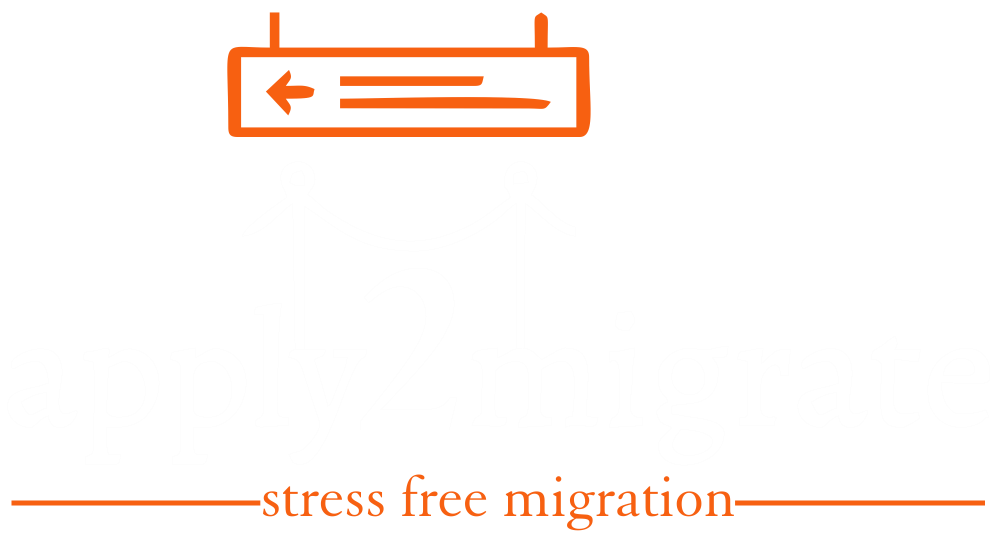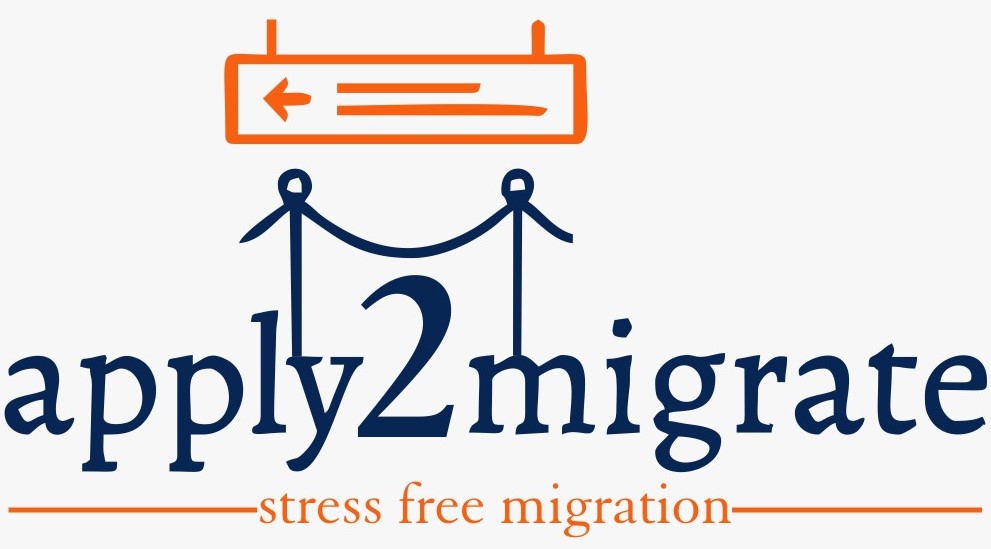Latest immigration policy updates from Canada, UAE, Australia, Thailand, and more

International students in Canada are struggling with rising unemployment and high living costs, leading to tough job markets and scrutiny of government policies.
Termination of Tax Representative Appointment in Portugal
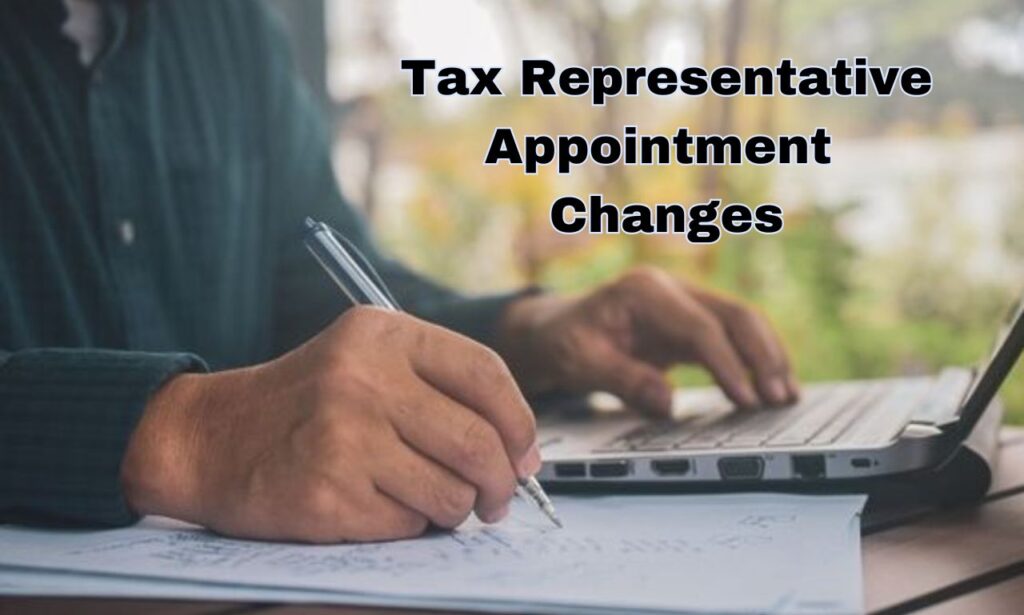
Portugal’s new tax law allows electronic notifications, ending the need for tax agents. This change simplifies tax duties for non-residents.
Addressing Global Labour Shortages: The Crucial Role of Expats

Global labor shortages underscore the value of expat workers in key industries.
How Are Global Immigration Policies Shifting in Early 2024
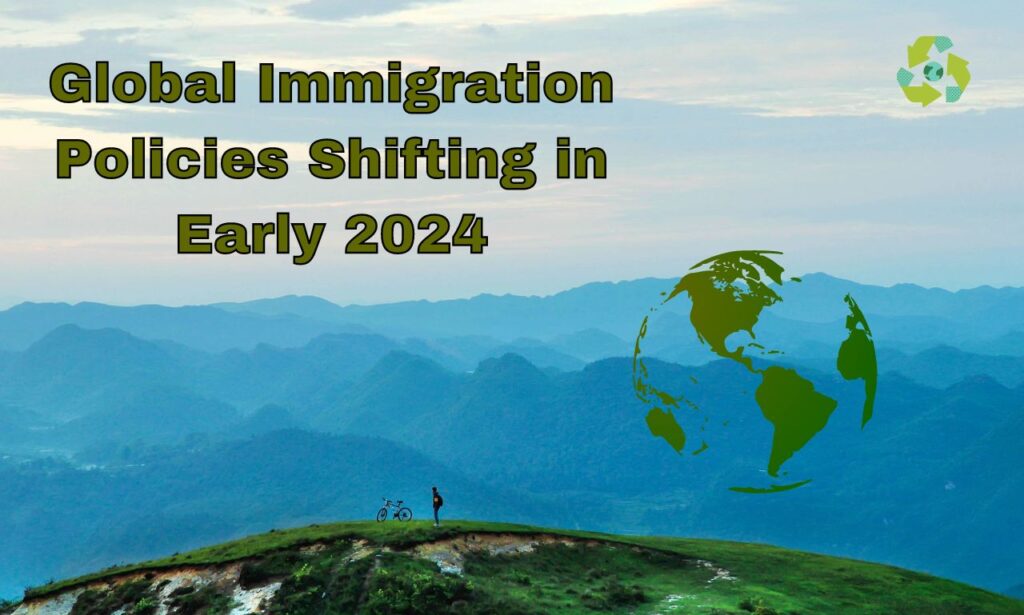
Global immigration policies are changing in 2024, with shifts seen worldwide.
Why Living Abroad is Gaining Popularity

Living abroad gains momentum post-COVID, driven by career growth and diverse experiences. Apply2migrate offers seamless migration solutions.
The new tax incentive for scientific research and innovation: an alternative to the NHR
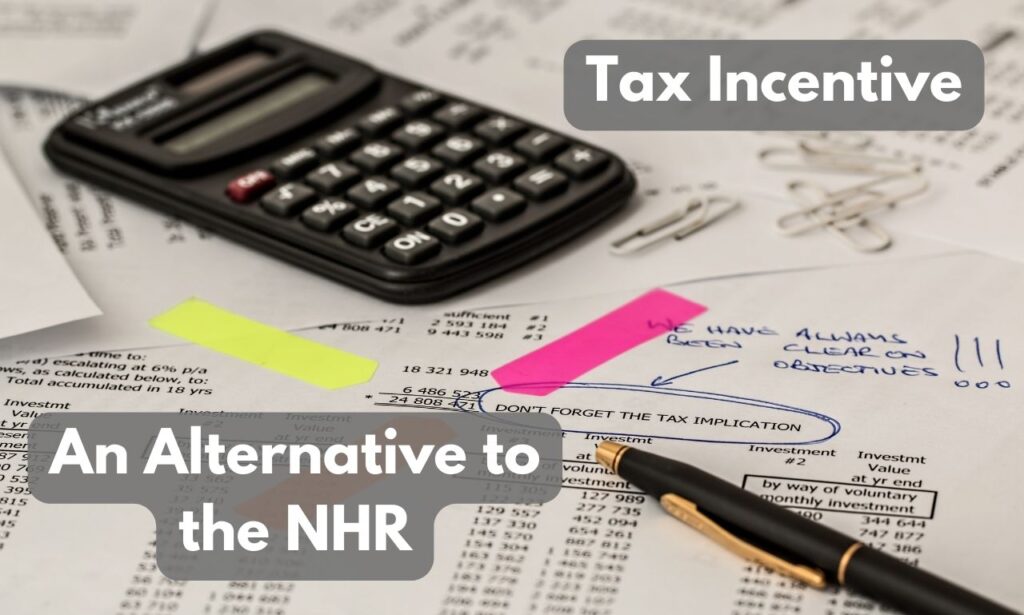
“Get your Portuguese NIF hassle-free with Getmenif.com. We simplify the process so you can focus on your new life in Portugal!”
Exploring Portugal’s Golden Visa Updates and Alternative Residency Pathways
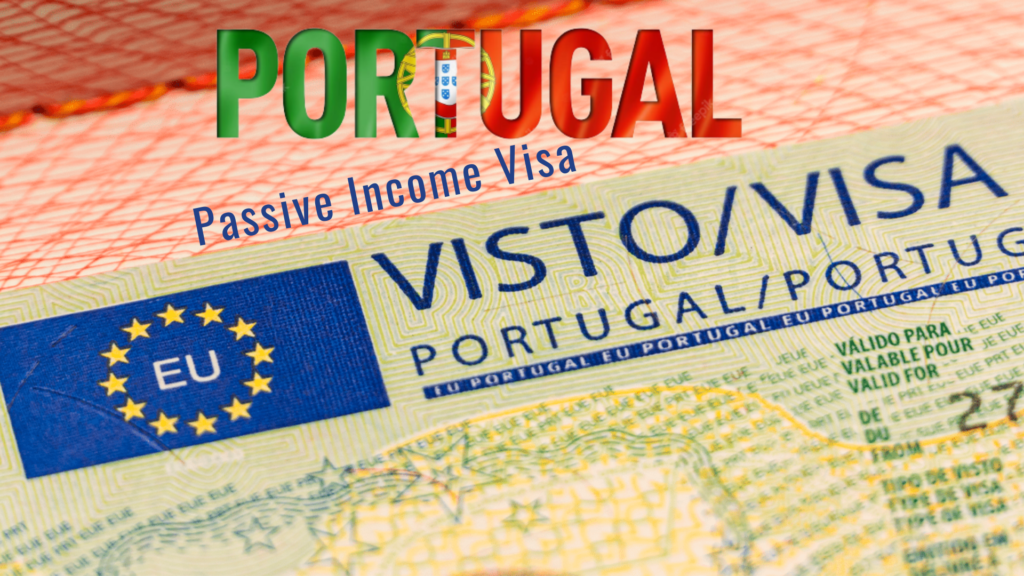
Recent developments have surfaced in the legislative landscape governing the Golden Visa program, signaling forthcoming changes for future applicants. These alterations stem from housing challenges encountered by Portugal’s average workforce, exacerbated by inflation’s impact on the housing market. In response, the Portuguese Government introduced legislation aimed at discontinuing the Golden Visa program. This legislative proposal underwent deliberation and voting within the Portuguese Parliament, aligning with broader measures aimed at mitigating the housing crisis. The approved final document outlines the cessation of three Golden Visa modalities while upholding the eligibility of five investment avenues for future Golden Visa applications. Categories Closures and Continuations: Pending approval by the President of the Republic, the legislation outlines the cessation of the following Golden Visa modalities for future applications: 1. Transferring €1,500,000.00 to a Portuguese bank account. 2. Acquiring real estate property. 3. Acquiring real estate property accompanied by rehabilitation works. It’s important to note that the termination of these modalities will not impact pending applications, future renewals, or familyreunification requests. Conversely, the legislation maintains eligibility for the following investments under the Portuguese Golden Visa program: 1. Creating a minimum of 10 jobs. 2. Transferring capital equal to or exceeding €500,000.00 for investment in research activities conducted by public or private scientific research institutions integrated into Portugal’s scientific or technological system. 3. Transferring capital equal to or exceeding €500,000.00 for establishing or reinforcing the share capital of a commercial company headquartered in Portugal, in conjunction with creating or maintaining five permanent jobs. 4. Making a cultural donation of €250,000.00 in projects certified by the Ministry of Culture. 5. Investing €500,000.00 in acquiring units of investment funds with a minimum maturity of five years, with at least 60% of investments realized in commercial companies headquartered in Portugal (excluding real estate funds). However, none of these investments will be eligible if directly or indirectly destined for the real estate market or real estate companies. Alternative Residence Visa: Despite the continuation of certain Golden Visa options, some individuals exploring relocation to Portugal may discover that alternative Residency Visas, such as the “D-Visa,” better align with their specific needs. The Residency Visa offers the advantage of typically not requiring investments with minimum thresholds, although it does entail longer minimum periods of stay within Portuguese territory. Applicants can initiate the process by applying at a Portuguese Consulate, and upon approval, they can request residency authorization from Portuguese Immigration Authorities. Following five years of residency in Portugal, individuals can pursue permanent residency authorization and/or Portuguese nationality. As there are various types of Residency Visas available, applicants must carefully select the appropriate modality based on their intended activities. Below are some of the primary modalities of the Residency Visa to consider. Passive Income Visa (D7): The Passive Income Visa, commonly referred to as the “D7,” stands out as one of the most appealing Residency Visas available. Applicants seeking this visa need only demonstrate income from passive sources, such as pensions, retirements, investment funds, stocks, or rental contracts, among other alternatives. Digital Nomad Visa (D8): Introduced as part of recent changes to Portuguese Immigration Legislation, the Digital Nomad Visa targets individuals working remotely for non-Portuguese entities or individuals. To qualify, applicants must provide evidence of average monthly earnings from employment or self-employment activities over the past three months, amounting to at least €3040.00 (value for 2023). The Job Seeker Visa: This visa enables individuals to search for employment opportunities in a foreign country for a designated period. Applicants typically need to demonstrate financial stability and relevant qualifications. It offers a pathway for individuals to explore career prospects abroad and potentially secure long-term employment. Requirements and duration vary depending on the destination country’s immigration policies. It’s an ideal option for those seeking to expand their professional horizons internationally. Highly Qualified Worker Visa: The Highly Qualified Worker Visa offers a streamlined process for attracting professionals and academics with high value-added skills to Portugal. Applicants must demonstrate the existence of an employment contract, freelance agreement, or promissory contract with a Portuguese entity or individual. This sub-modality also encompasses the renowned “Tech-Visa,” facilitating a fast-tracked relocation process for expatriates employed in companies and start-ups certified by the Portuguese Agency for Competitiveness and Innovation. In such cases, the employing company has the option to initiate the relocation process on behalf of the employee. Employment Activity Visa (D1): The Employment Activity Visa mandates applicants to demonstrate the existence of an employment contract or promissory contract between themselves and a Portuguese entity or individual. This visa category requires submission to the Portuguese Consulate. Freelancer or Entrepreneur Visa (D2): Tailored for individuals engaged in freelance activities or entrepreneurs, the Freelancer or Entrepreneur Visa accommodates applicants holding a contract or promissory contract with a Portuguese entity or individual. Alternatively, individuals incorporating a Portuguese company are eligible. Notably, no minimum threshold for share capital or investment is specified for the incorporation of a Portuguese company. Family Members (Reunification) (D6) Under this provision, applicants of any Residency Visa type are not required to await consolidation of their residency status in Portugal to sponsor family members. Spouses or individuals in civil partnerships for more than two years, minor children or stepchildren, and economically dependent adults, such as adult children and parents, can concurrently apply for the Family Member Residency Visa with the primary applicant. Conclusion: While certain Golden Visa modalities remain intact, providing opportunities for prospective investors, there are diverse pathways available for individuals and investors aiming to capitalize on Portugal’s economic growth and secure Portuguese residency. Read more about Visa options to Portugal Stay updated by following us! For assistance in navigating the Portuguese visa system, contact us at info@apply2migrate.com. If you operate an immigration consultancy, partner with us to enhance your service offerings and better serve your clients. Contact us at info@apply2migrate.com
Explore Job Opportunities in Austria with Job Seekers Visa
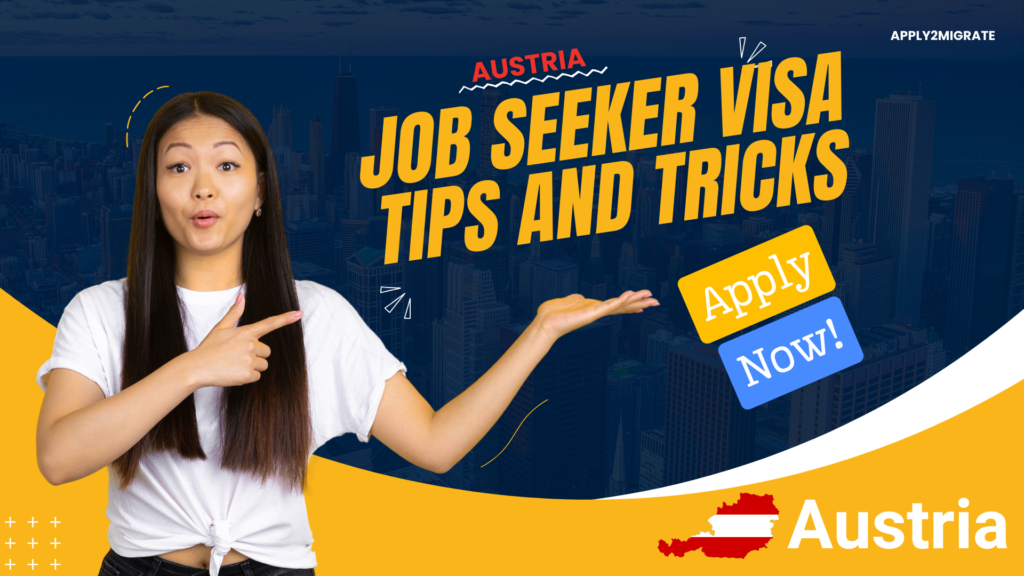
Exploring Career Opportunities in Europe: The Austria Job Seeker Visa Are you dreaming of embarking on a new career journey in Europe? Do you possess a wealth of education and sought-after skills that make you stand out in the global job market? If your answer is yes, then the Austria Job Seeker Visa might just be the ticket to unlocking exciting professional possibilities. What is the Austria Job Seeker Visa? The Austria Job Seeker Visa offers a unique opportunity for individuals like you to spend up to six months in Austria, dedicated solely to finding employment opportunities that align with your qualifications and aspirations. During this time, you have the freedom to immerse yourself in the Austrian labor market, network with potential employers, and explore various professional avenues. It’s important to note that the Austria Job Seeker Visa does not permit you to work or study during this initial six-month period. Instead, it serves as a bridge to help you secure a job that could lead to a more permanent work permit and residence permit in Austria. Eligibility Criteria for the Austria Job Seeker Visa To be eligible for the Austria Job Seeker Visa, you must meet certain criteria, including: Holding a Bachelor’s or Master’s degree from a recognized university or an equivalent qualification. Possessing a minimum of five years of relevant work experience in your field of study. Demonstrating sufficient funds to cover your living expenses in Austria for six months, often through a blocked account. Obtaining health insurance that covers your stay in Austria and the broader Schengen area. Presenting a valid passport and a detailed travel itinerary. Maintaining a clear criminal record and posing no security threat to Austria. How to Apply for the Austria Job Seeker Visa The application process for the Austria Job Seeker Visa involves several steps: Locate the nearest Austrian embassy or consulate in your country and schedule a visa interview. Complete the visa application form and gather all necessary documents, including your passport, diploma, CV, proof of funds, and health insurance. Pay the visa fee of €100 and submit your application to the embassy or consulate. Attend the visa interview, where you may be asked about the purpose of your visit, your qualifications, and your plans in Austria. Await the decision on your visa application, which may take up to three months. Upon approval, collect your passport with the visa sticker and prepare to travel to Austria within the visa’s validity period. Making the Most of Your Time in Austria Upon your arrival in Austria, it’s essential to register your address with the local authorities and begin your job search journey in earnest. Utilize the connections you’ve made and the insights you’ve gained during your six-month stay to secure meaningful employment opportunities that align with your career goals. Final Thoughts The Austria Job Seeker Visa offers a fantastic opportunity for individuals seeking to explore career opportunities in Europe. By meeting the eligibility criteria and following the application process diligently, you can pave the way for a successful career transition in one of Europe’s most dynamic and culturally rich countries. For more information about the Austria Job Seeker Visa and other migration services, feel free to reach out to Apply2Migrate at info@apply2migrate.com or via WhatsApp at +447501400555 Discover Apply2Migrate’s comprehensive migration solutions for Portugal, Germany, Sweden, and Austria, and embark on your journey to a brighter future today!
Expat tax changes you need to know in 2024
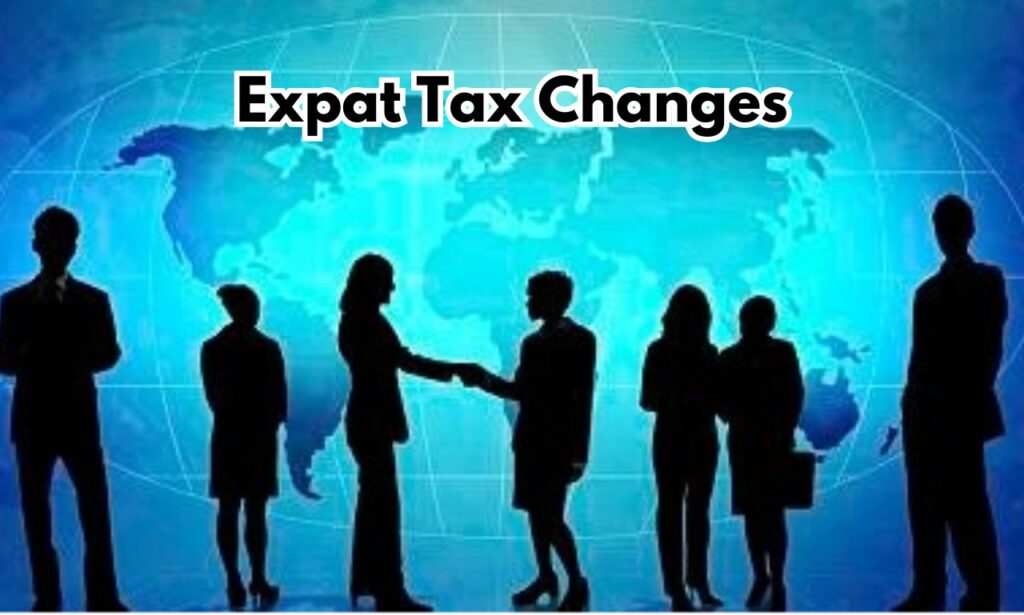
Apply2migrate makes moving abroad easy with visa help, housing support, and relocation services.
Job Seeker Visa Austria

A job seeker visa for Austria allows individuals to enter the country and search for a job for a specific period of time. To be eligible for a job seeker visa, individuals must generally have completed a higher education program, be fluent in German, and have enough financial resources to support themselves during their job search. To apply for a job seeker visa, individuals must first submit an application to the Austrian embassy or consulate in their home country. The application will typically require documentation such as a passport, proof of education and language skills, and proof of financial resources. It is important to carefully gather all required documentation and to ensure that the application is complete and accurate. Once the application has been submitted, the embassy or consulate will review it and may request additional information or an interview. If the application is approved, the individual will be issued a job seeker visa, which will allow them to enter Austria and search for a job for a specific period of time. It is important to note that a job seeker visa does not guarantee employment in Austria. Individuals who hold a job seeker visa are responsible for finding their own job and must return to their home country if they are unable to find employment within the specified time period. A 30-year old Indian informatics graduate with over 6 years of work experience and very good English language skills wants to find employment in Austria. She receives 72 points and therefore exceeds the minimum number of points, which is 70 points; 30 points are granted for informatics studies (MINT4 subject) under the special qualifications and skills criteria. Furthermore, she is given 12 points for work experience, 10 points for language skills (English A2) and 20 points for her age. She can apply for a “Jobseeker Visa” which allows her to enter Austria and gives her 6 months to find a suitable job. She can apply for the Red-White-Red Card if there is a job offer that matches her qualifications. Fees: Jobseeker Visa: € 150 Red-White-Red Card: Application: € 120 Granting: € 20 Costs of personalisation (fingerprints, scan of photography and signature): € 20

